Certain dog breeds have slower metabolisms, but it is never inevitable your pet pooch will pile on the pounds.
American Kennel Club's (AKC) chief veterinary officer, Dr. Jerry Klein, says that dogs gain weight the same way as their owners—by excessive eating and exercising too little.
"Usually this can be contributed to being fed too many treats, table scraps, and too much food overall, and little exercise," he tells Newsweek. "Obesity is the most common preventable disease in dogs.
"About 25 percent of the canine population is obese, with nearly half of dogs ages 5 to 11 years old being over their ideal weight.
"Dogs are considered technically obese when they weigh 20 percent or more above their ideal body weight."
Dr. Klein cites a 2019 study conducted by the U.K.'s Banfield Pet Hospital that found the lifespan of overweight dogs was up to 2.5 years shorter, on average, than the lifespan of dogs with a healthy bodyweight.
"Obesity also makes them more likely to develop disease," he adds. "Heavy dogs typically live a shorter lifespan than lean dogs, usually by 6 to 12 months."
However, he says there are certain steps every owner can follow to preventing their pet dog from gaining weight.
"Before starting any exercise or weight loss program you should consult with your veterinarian," he says. "It is important to feed your dog a nutritional product that is low in calories but is nutritious.
"Switching your dog's treats to healthier options will help him lose weight, too.
"Keeping active and fit are important for both people and dogs. The most recommended and safest exercise to improve fitness is walking."
Here are the breeds most at risk...
Bulldogs
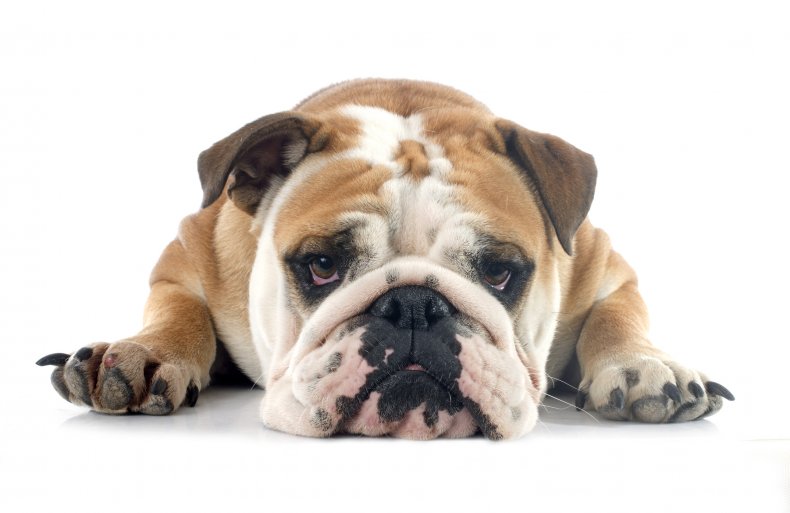
The Bulldog breed can weigh up to 50 pounds and requires moderate exercise to keep them in good shape.
Dr. Klein says: "They should be fed high-quality food that is approved by your veterinarian."
French Bulldogs
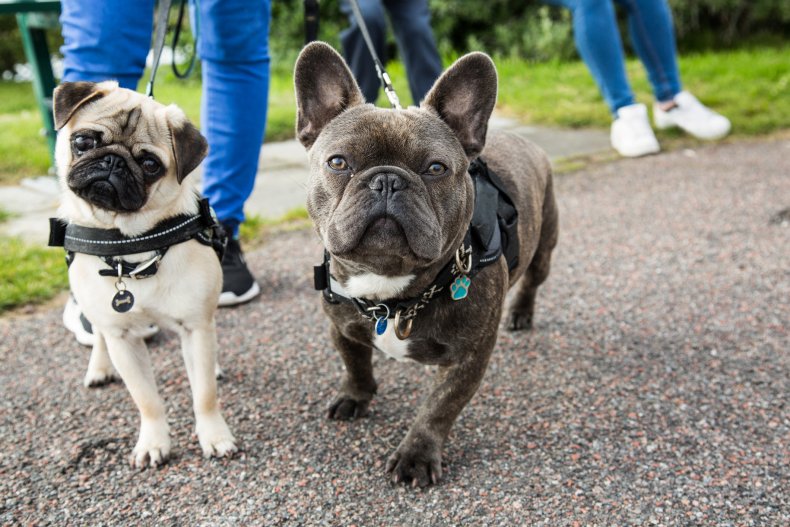
Frenchies are prone to weight gain, putting the breed at potential risk of other health issues, meaning they require a nutritionally balanced diet.
"Feed them treats in moderation and avoid feeding them high-fat table scraps," Dr. Klein says.
"Make sure to take them on short walks daily to keep them in shape. Avoid overexerting them when it's too hot outside."
Basset Hounds
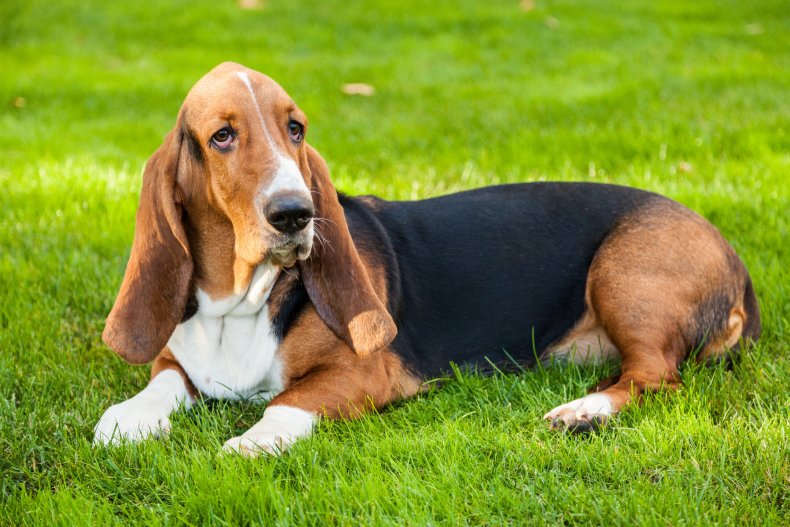
Bassets are another breed prone to gaining weight and should be placed on a diet appropriate for their age.
"Avoid feeding them too many treats, especially while training," Dr. Klein says.
"Instead speak to your vet about human foods that are lower in calories and healthier to give your dog instead of treats that are high in fat or calories.
"Including a moderate walk daily should keep your dog in good shape."
Dachshunds
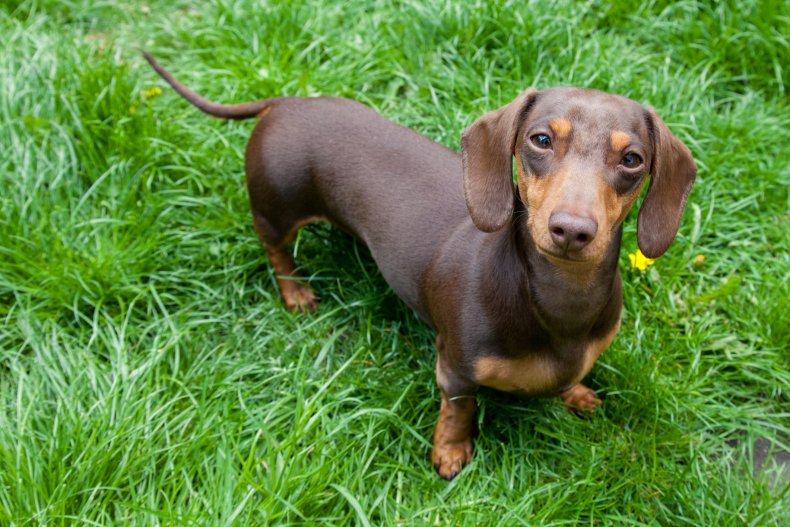
Although Dachshunds are small in stature, Dr. Klein cautions the importance of being mindful of their diet as they can easily put on weight.
AKC's chief veterinary officer tells Newsweek: "Any extra weight on this breed is detrimental to their joints and bones.
"By maintaining their weight, you avoid extra strain to the Dachshund's long back, which can lead to slipped or herniated discs.
"Moderate light exercise daily will keep them in shape and maintain their back's strong for added support and protection."
Pugs
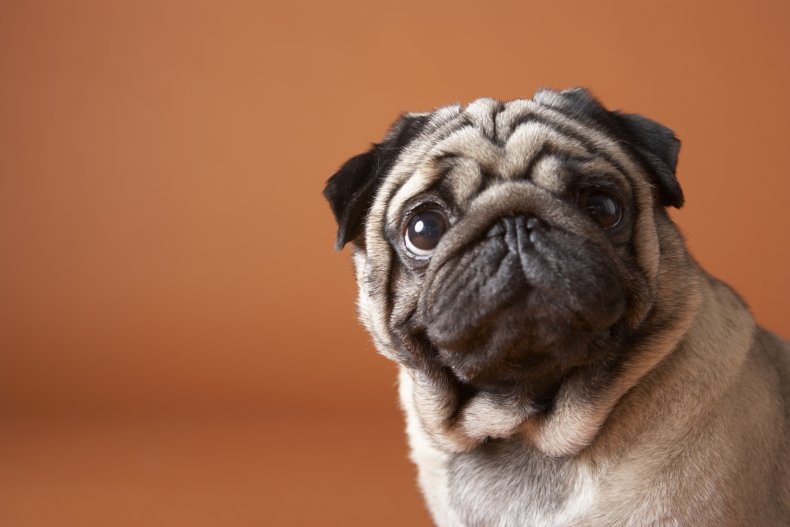
The Pug is a breed that can pile on the pounds, meaning responsible owners need to take great care with this breed's diet.
Dr. Klein advises: "Consult with your vet what foods and how much to feed your dog to avoid unwanted weight gain.
"Daily walks and play sessions are a good way to keep their weight in check but avoid strenuous activity when it is hot out."
Boxers
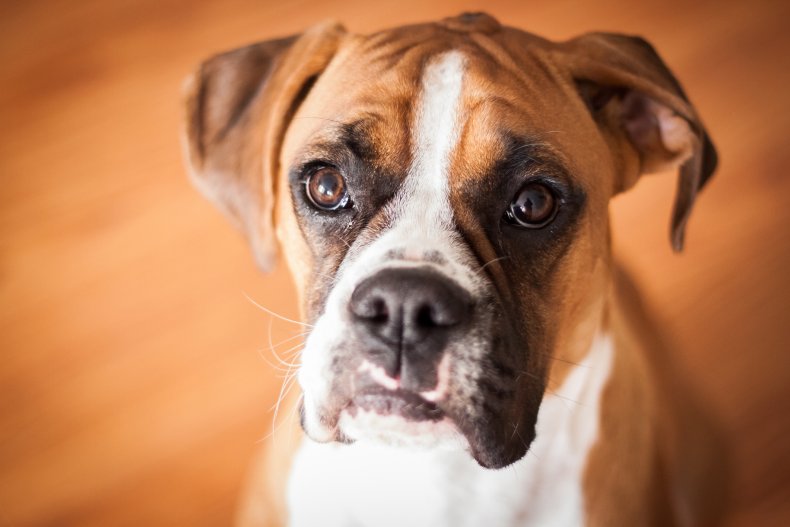
Although the Boxer is a high energy breed, these are prone to weight gain if they are overfed.
"It's important to consult with your veterinarian an ideal diet for your dog based on their activity levels and dietary needs," Dr. Klein says.
Cocker Spaniels
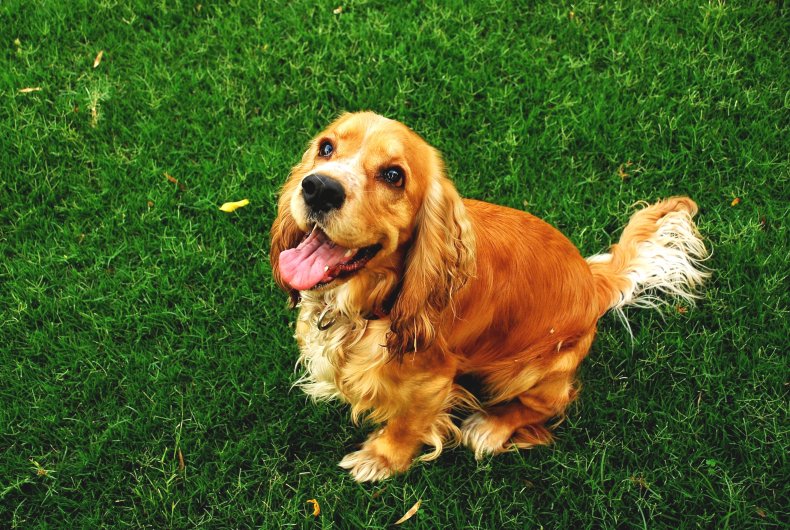
Cocker Spaniels require high-quality foods and can be prone to some food sensitivities, so the breed's diet is consequently crucial for their well-being.
Dr. Klein says: "They are also prone to obesity which is another reason to be mindful of how much they are eating regularly.
"This sporting breed does well with moderate exercise and enjoys any form of activity that includes bonding with their owners."
Beagles
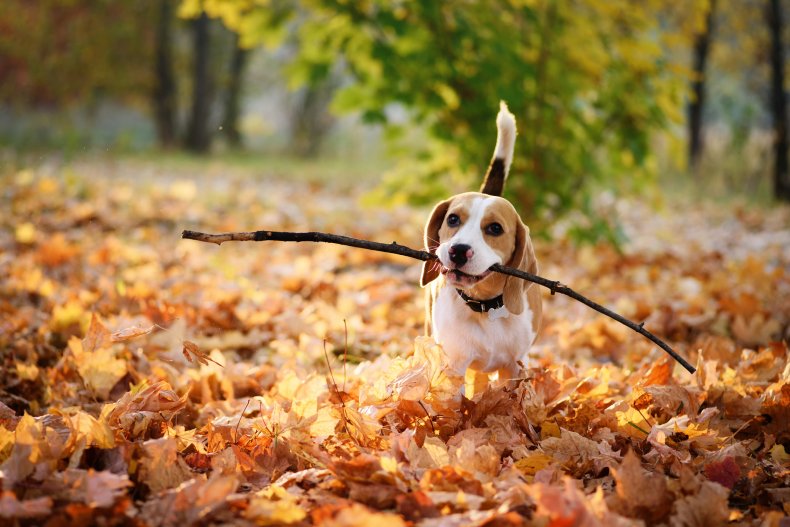
Although this hound dog is not a big breed, the Beagle breed's weight can become an issue if overfed.
"It's important to limit how many treats they are given during training and throughout the day," Dr. Klein advises.
"This energetic breed benefits from at least an hour of exercise daily and love a good exercise companion."
German Shepherd Dogs
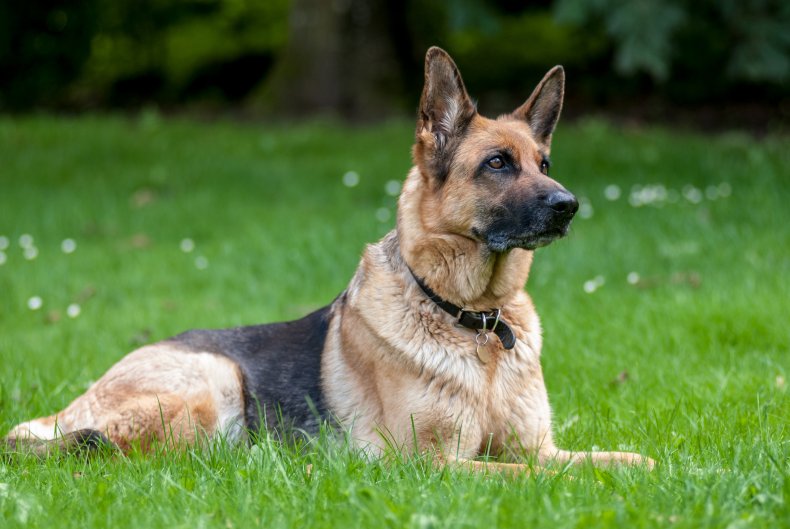
German Shepherd dogs should be fed a high-quality diet and given table scraps very sparingly to avoid gastrointestinal discomfort.
"This active breed requires a lot of exercise to keep their weight in check and to avoid potentially destructive behaviors," Dr. Klein says.
"This breed also excels in dog sports such as agility, herding, tracking, and dock diving, which are other good ways to get exercise in."
Shih Tzu
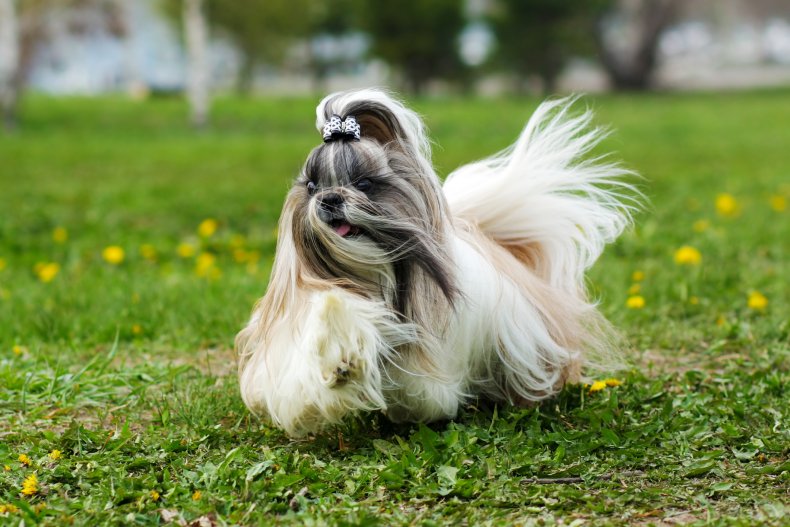
This toy dog breed should be kept on a well-balanced diet as some dogs are prone to getting overweight, if they eat more than their allotted daily calories.
Dr. Klein notes: "Even though this breed was bred to be a house companion, they do require some light exercise in the form of walking or playtime."
Pomeranian
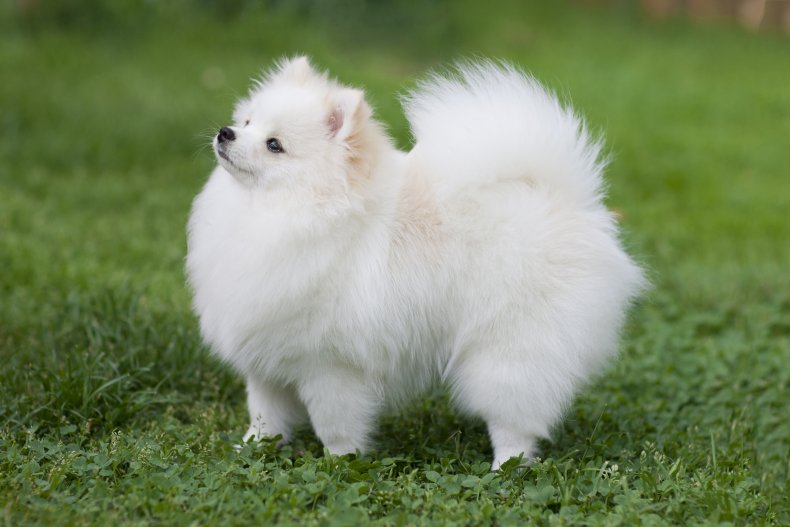
The Pomeranian is another toy dog breed that should be fed a high-quality diet while owners remain mindful of their pets' caloric intake.
"Some dogs may be prone to gaining weight, therefore it's important to keep them active either through short or indoor play," Dr. Klein says.
Bullmastiffs
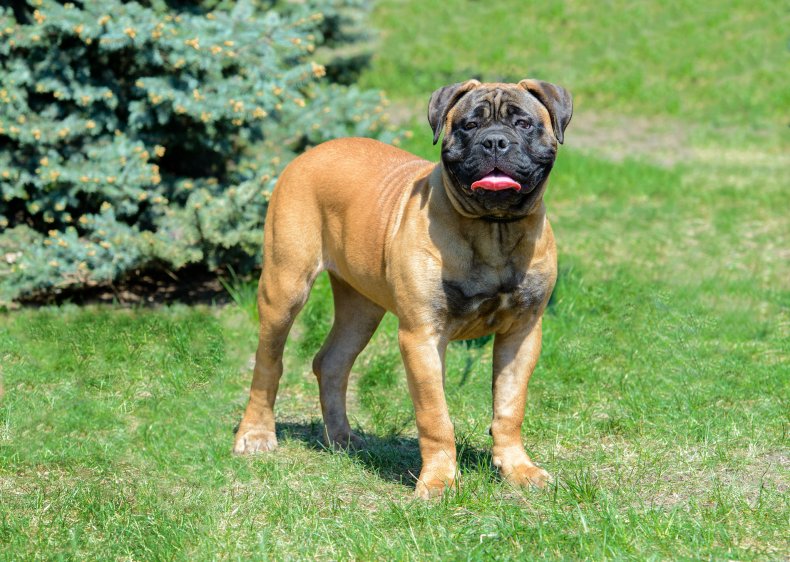
Bullmastiffs require a specific diet that prevents bloating, with Dr. Klein recommending "they be fed several small meals when they're puppies, and two meals daily as adults."
He adds: "This prevents them from digesting too much food at each meal.
"They should be kept lean, especially since they grow quickly, which can take a toll on their bodies.
"Ideally, daily brisk walks or playing outdoors is a good way to keep them active."
Labrador Retrievers
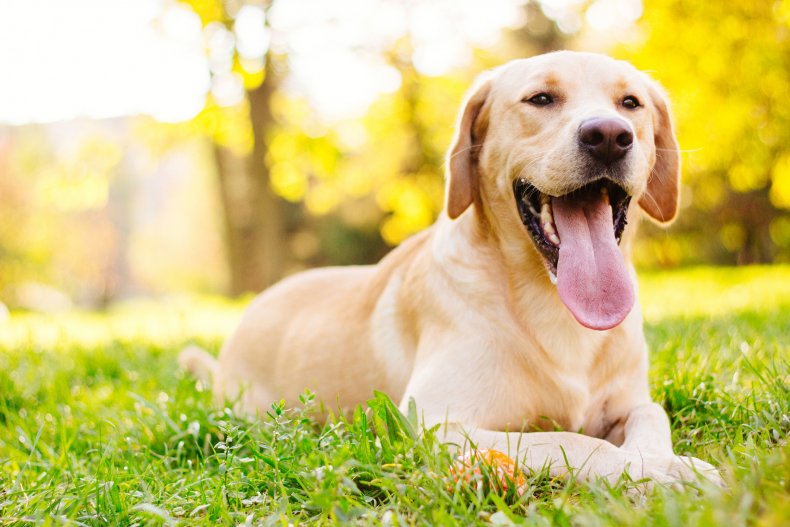
Some of these dogs can be prone to weight gain, meaning owners need to keep a watchful eye on their diet under the guidance of their veterinarian.
Dr. Klein says: "The Lab is a very energetic breed which requires daily exercise.
"Take them on a long walk, swimming or have them participate in dog sports to release their pent-up energy."
Rottweilers
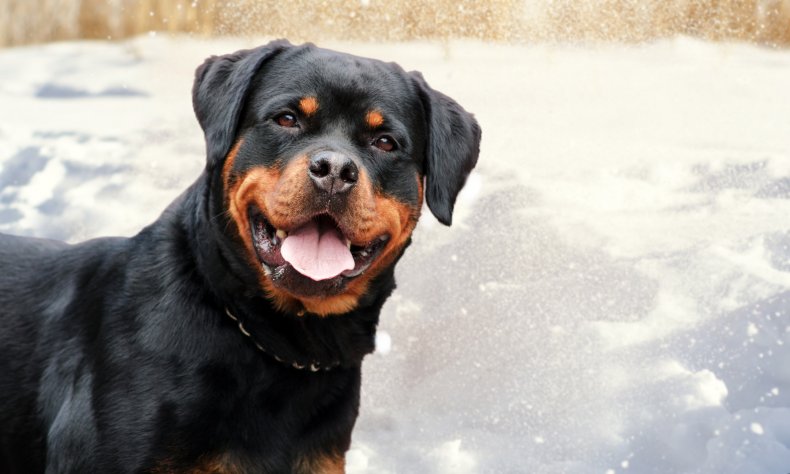
Although Rotties are a highly muscular and athletic breed, owners of the breed still need to avoid overfeeding them.
"They are a very versatile breed that can excel at most dog sports and are excellent workers," notes Dr. Klein.
Cavalier King Charles Spaniels

Experts recommend putting this toy dog breed on a well-balanced diet and kept active, due to their propensity to put on weight.
Dr. Klein says: "They enjoy being lapdogs, but also going for walks or being active in dog sports."
Golden Retrievers
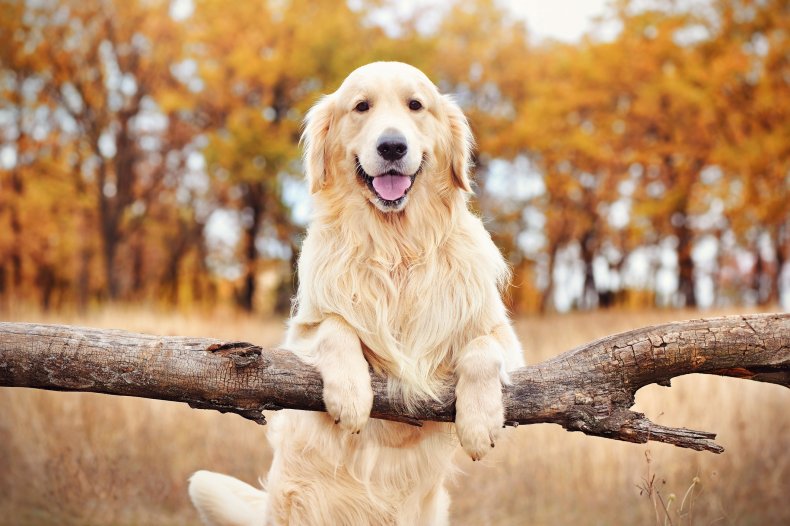
Some Golden's can easily become overweight, so it is therefore a good idea to make sure they maintain a healthy weight.
"Feed them table scraps limitedly and avoid giving them too many treats," Dr. Klein says.
"As a sporting breed, Goldens' need a lot of exercise and benefit from long runs, walks, or participating in dog sports.
"Consult with your veterinarian before starting an exercise program with your dog that involves high impact or strenuous activity."
Newfoundlands
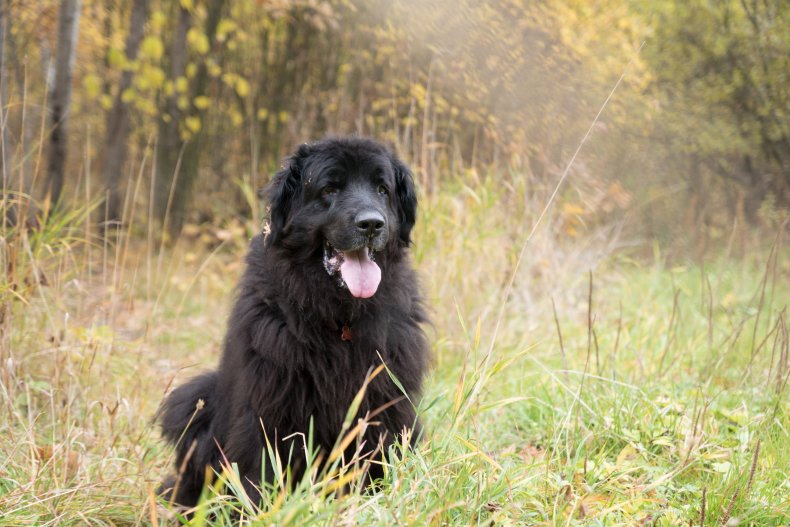
Newfies are a strikingly large breed capable of weighing as much as 150 pounds, leading Dr. Klein to counsel the breed "should have their diet monitored to avoid weight gain."
He adds: "Additionally, this breed tends to experience bloat and benefits from multiple small meals a day rather than two big meals.
"This breed benefits from a half-hour of exercise daily and also and make great companions on long walks or hikes.
Scottish Terriers
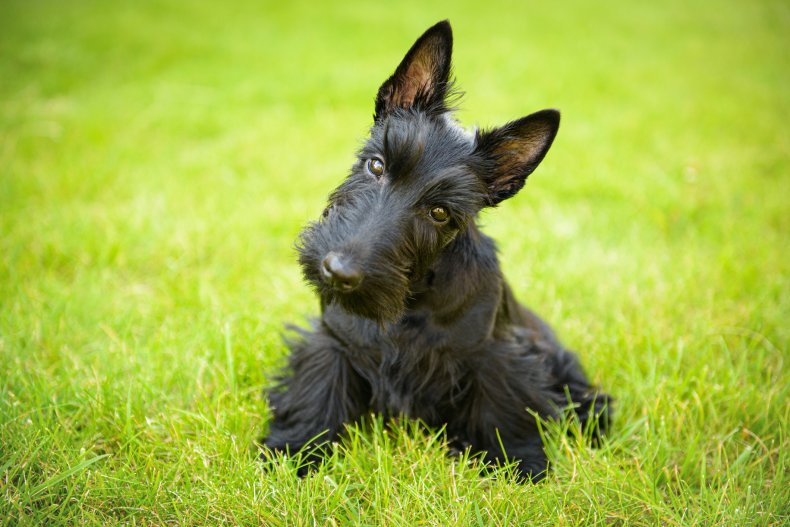
Terriers do well on a moderate-protein diet with a bit of an additive such as canned food.
Dr. Klein warns: "Scotties tend to develop dry and flaky skin and irritated eyes if not fed a proper diet.
"They love a good walk but thrive during playtime. They're a high-energy breed that loves a good game of fetch and tug of war.
"These activities will help keep them in good physical and mental shape."
Chihuahua
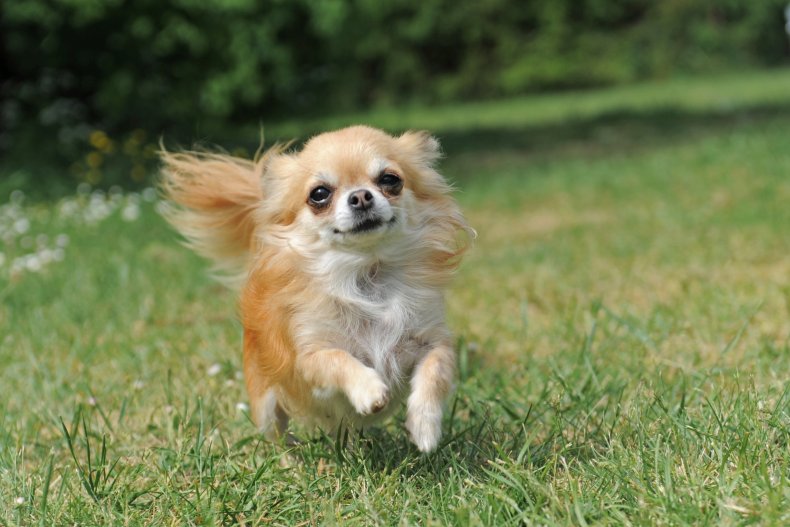
Chihuahuas are prone to getting overweight so their human carers should closely monitor their canine's calorie consumption.
Dr. Klein says: "Treats can be an important training aid but too many can lead to obesity.
"If you are going to give your dog a few table scraps, avoid cooked bones and foods high in fat.
"Short and slow walks will help maintain your dog's weight. Chihuahuas love to run and play and can get a lot of exercise in a small space."
Yorkshire Terriers
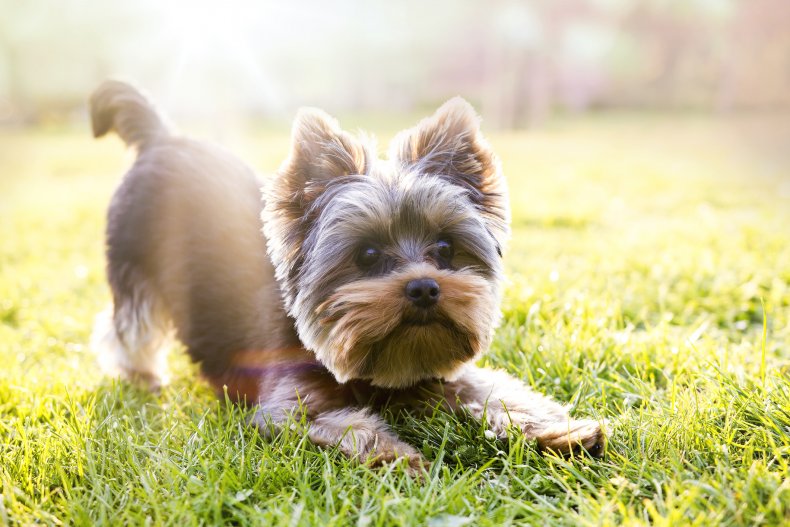
Small dogs like Yorkies are prone to getting overweight so owners should strictly observe their pet is not overeating.
"They do well on high-quality dog food," Dr. Klein says. "Yorkies benefit from moderate exercise physically and mentally.
"They love a brisk walk with their owner as well as just chasing after a tennis ball in the backyard.
"A short walk twice a day will be enough for your Yorkie. They would also benefit from participating in dog sports such as Obedience and Agility."
"avoid it" - Google News
July 23, 2021 at 06:00AM
https://ift.tt/3iDmLIn
20 Dog Breeds Prone to Being Overweight and How to Avoid it - Newsweek
"avoid it" - Google News
https://ift.tt/3844a1y
https://ift.tt/2SzWv5y

No comments:
Post a Comment